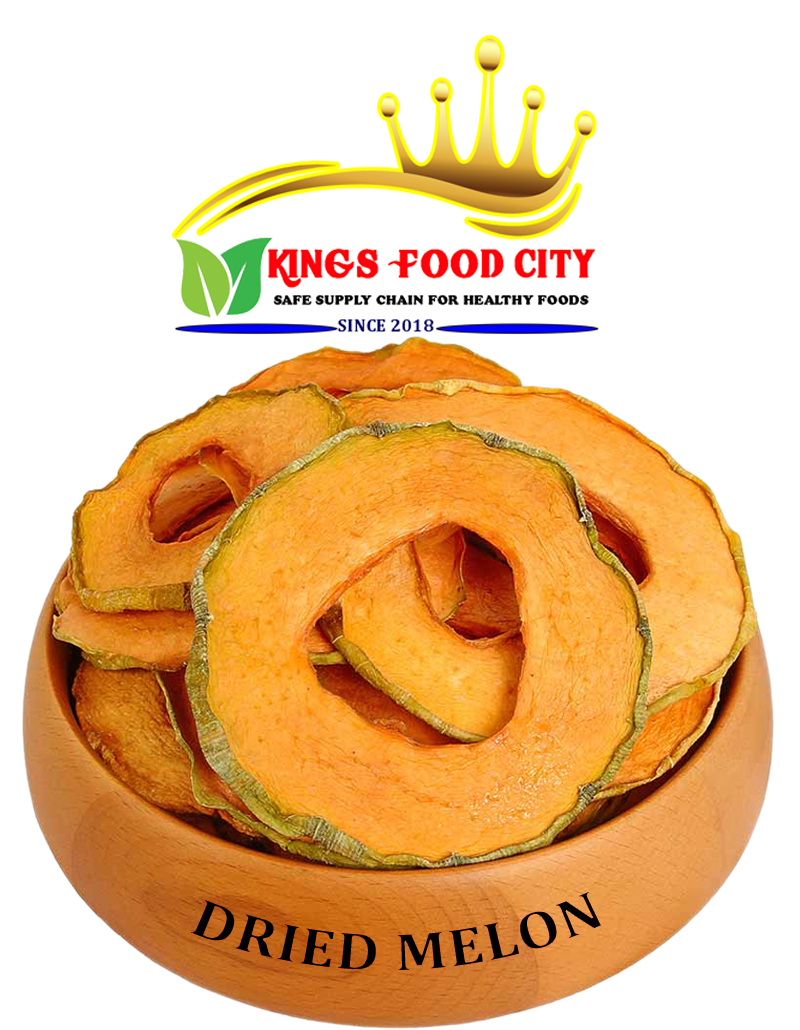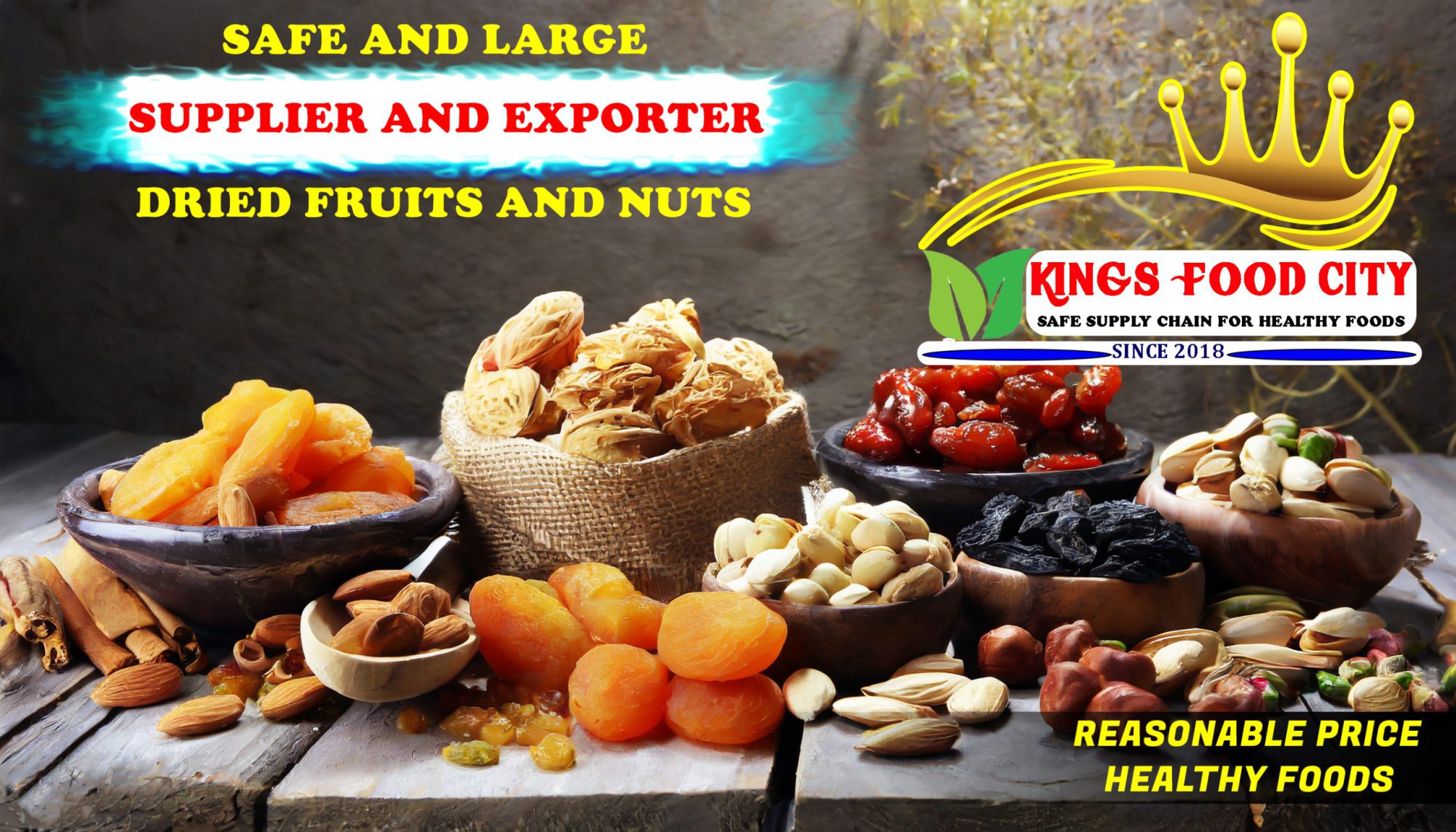Dried Melon and Benefits for Human Body
Melons are a type of fruit that belong to the Cucurbitaceae family, which also includes cucumbers, pumpkins, and squash. They are native to Africa and Asia but are now widely cultivated and enjoyed around the world.
There are many different varieties of melons, including watermelon, cantaloupe, honeydew, and muskmelon, each with their own unique flavor, texture, and appearance. Melons are known for their sweet, juicy flesh and are often enjoyed fresh as a refreshing summer snack or used in salads, smoothies, and desserts.
Dried melon is made by dehydrating melon slices or pieces. This process removes the water content from the fruit, resulting in a chewy and concentrated product. Drying melons helps to extend their shelf life and create a convenient, portable snack. Dried melon can be eaten on its own or added to trail mixes, baked goods, or granola.
Dried melon is a unique and flavorful delicacy that is commonly consumed as a satisfying and filling snack. It can be added to salads, placed on top of ice cream, used in the creation of desserts, cakes, muffins, and cupcakes. It also pairs well with yogurt, natural drinks, and smoothies, adding a delicious taste. Dried melon is frequently utilized in cereal blends and "exotic" recipes, as it imparts a special flavor to well-known dishes. Additionally, it can be used to flavor tea. Like other dehydrated fruits, melon is suitable as a snack for athletes and can be included as an ingredient in energy bars.
Dried melon is a nutritious snack that offers a range of properties and benefits. Here are some key points to know:
1. Nutrient-rich: Dried melon is a great source of essential nutrients such as vitamins A and C, potassium, and dietary fiber. These nutrients are important for maintaining overall health and wellbeing.
2. Antioxidant content: Dried melon contains antioxidants, including carotenoids and vitamin C, which help protect the body against free radicals and oxidative stress. Antioxidants also play a role in supporting a healthy immune system.
3. Digestive health: The high fiber content in dried melon can support healthy digestion and prevent constipation. Fiber adds bulk to the stool, promotes regular bowel movements, and helps maintain a healthy digestive system.
4. Hydration properties: Melon is naturally high in water content, and when it is dried, some of that water is retained. Snacking on dried melons can help provide a slight hydration boost and contribute to meeting daily fluid requirements.
5. Energy boost: Dried melon can serve as a quick and healthy energy boost due to the natural sugars it contains. The combination of natural sugars and fiber provides a steady release of energy, making it a good snack choice for active individuals.
6. Weight management: The fiber and water content in dried melon make it a satisfying snack that can help with weight management. It promotes a feeling of fullness, reducing the likelihood of overeating, and can be a healthier alternative to sugary snacks.
7. Convenient and portable: Dried melon is lightweight and portable, making it a convenient snack option for on-the-go. It can be easily added to trail mixes, oatmeal, baked goods, or eaten on its own.
Dried melon is a unique and flavorful delicacy that is commonly consumed as a satisfying and filling snack. It can be added to salads, placed on top of ice cream, used in the creation of desserts, cakes, muffins, and cupcakes. It also pairs well with yogurt, natural drinks, and smoothies, adding a delicious taste. Dried melon is frequently utilized in cereal blends and "exotic" recipes, as it imparts a special flavor to well-known dishes. Additionally, it can be used to flavor tea. Like other dehydrated fruits, melon is suitable as a snack for athletes and can be included as an ingredient in energy bars.
Dried melon is a nutritious snack that offers a range of properties and benefits. Here are some key points to know:
1. Nutrient-rich: Dried melon is a great source of essential nutrients such as vitamins A and C, potassium, and dietary fiber. These nutrients are important for maintaining overall health and wellbeing.
2. Antioxidant content: Dried melon contains antioxidants, including carotenoids and vitamin C, which help protect the body against free radicals and oxidative stress. Antioxidants also play a role in supporting a healthy immune system.
3. Digestive health: The high fiber content in dried melon can support healthy digestion and prevent constipation. Fiber adds bulk to the stool, promotes regular bowel movements, and helps maintain a healthy digestive system.
4. Hydration properties: Melon is naturally high in water content, and when it is dried, some of that water is retained. Snacking on dried melons can help provide a slight hydration boost and contribute to meeting daily fluid requirements.
5. Energy boost: Dried melon can serve as a quick and healthy energy boost due to the natural sugars it contains. The combination of natural sugars and fiber provides a steady release of energy, making it a good snack choice for active individuals.
6. Weight management: The fiber and water content in dried melon make it a satisfying snack that can help with weight management. It promotes a feeling of fullness, reducing the likelihood of overeating, and can be a healthier alternative to sugary snacks.
7. Convenient and portable: Dried melon is lightweight and portable, making it a convenient snack option for on-the-go. It can be easily added to trail mixes, oatmeal, baked goods, or eaten on its own.


